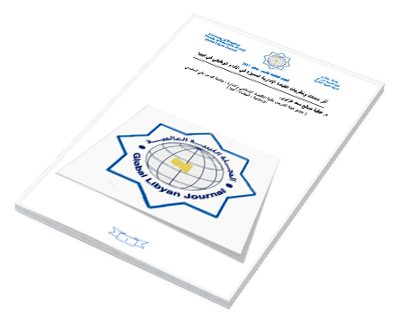The Effect of features and distinctive theories Aalkieh administrative functionality in Libya
DOI:
https://doi.org/10.37376/1570-000-013-009Abstract
Administrative leadership humane skill in the lives of human beings and the adoption of the organization, and what success and failure, but her reasons, including that the man is a key element in every organization's operations starting from the planning and input, then the organization and processes, down to the outputs and direction and control; to be the organization's success, and this is what we offer in this research, and its aim is to clarify the flimsy administrative leadership of the institutions of government state in Libya at all levels of management of the senior management, and management console, to the executive management, and in this paper we use the information and previous studies on the same topic, and display attributes and the important characteristics of administrative leadership, and theories management leadership, and provide administrative leader successful model, we follow the descriptive and analytical approach, down to draw conclusions from a field study of some five ministries Libyan officials, it was reached the following conclusions: the need to clarify the importance of the career center for each employee with full transparency and clarity; to determine the responsibilities and obligations of staff in the structure the organization, and the statement that the commissioning of public office, the basis of science, specialization and experience. Any efficiency and effectiveness, as well as the necessity of activating the regulatory agencies within the organization and outside the government for the state of quality and success.
Downloads

Downloads
Published
How to Cite
Issue
Section
License
Copyright (c) 2021 Global Libyan journal

This work is licensed under a Creative Commons Attribution-NonCommercial-NoDerivatives 4.0 International License.




